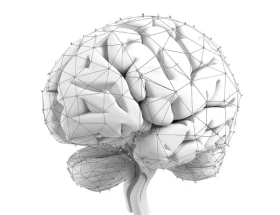Recent research highlights how everyday physical activity can benefit cognitive health. A study by Hakun et al. (2024) examined the short-term effects of regular physical activity on mental processing speed and working memory. Using real-time assessments, the study provides new insights into how light and moderate physical activities can promote brain health in middle-aged adults.
Background
Physical activity has long been associated with long-term cognitive and brain health benefits. However, the immediate effects of everyday activities, such as walking the dog or household chores, on cognitive performance remain less explored. Advances in mobile technology now allow researchers to gather real-time data on daily behaviors and their cognitive outcomes. This study leveraged ecological momentary assessment (EMA) techniques to investigate these relationships.
Key Insights
- Immediate Benefits for Processing Speed: Participants who engaged in physical activity within 3.5 hours before an assessment showed improvements in mental processing speed equivalent to four years younger.
- Activity Intensity: Cognitive benefits were observed regardless of whether the activities were of light intensity (e.g., walking, chores) or moderate-to-vigorous intensity (e.g., jogging, running).
- Working Memory Response Time: While visuospatial working memory accuracy did not improve significantly, response times during these tasks followed the same trend as processing speed.
Significance
The findings suggest that physical activity, even at light intensities, can offer immediate cognitive benefits, particularly for processing speed. These results highlight the potential for integrating more regular physical activity into daily routines as a simple and accessible way to promote cognitive health. The study also emphasizes the value of real-time data collection methods for understanding behavioral and cognitive interactions.
Future Directions
Future research could expand on these findings by exploring the long-term impacts of sustained everyday physical activity on various cognitive domains. Additionally, investigating how these effects vary across diverse demographic groups would help determine how to optimize interventions for broader populations. Identifying specific activity types that yield the greatest benefits could further refine recommendations for improving cognitive health.
Conclusion
This study demonstrates the immediate cognitive benefits of everyday physical activity for middle-aged adults. By emphasizing the accessibility of light-intensity activities and their association with improved processing speed, the research provides a foundation for practical interventions to enhance cognitive health.
Reference
Hakun, J. G., Benson, L., Qiu, T., Elbich, D. B., Katz, M., Shaw, P. A., Sliwinski, M. J., & Mossavar-Rahmani, Y. (2024). Cognitive Health Benefits of Everyday Physical Activity in a Diverse Sample of Middle-Aged Adults. Annals of Behavioral Medicine, kaae059. https://doi.org/10.1093/abm/kaae059










